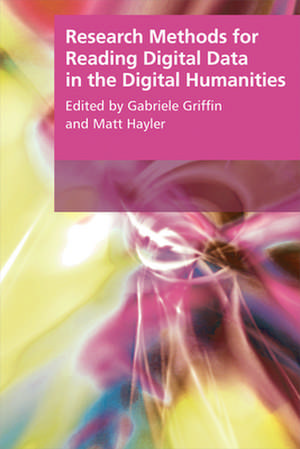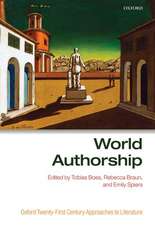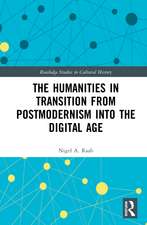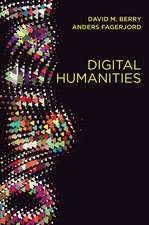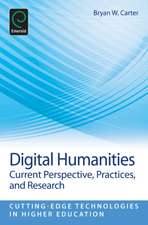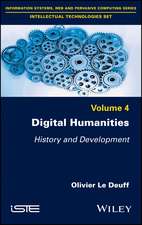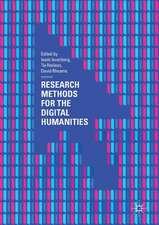Research Methods for Reading Digital Data in the Digital Humanities: Systems, Theory, Aesthetics: Research Methods for the Arts and Humanities Eup
Autor Griffinen Limba Engleză Hardback – 27 feb 2016
| Toate formatele și edițiile | Preț | Express |
|---|---|---|
| Paperback (1) | 191.85 lei 3-5 săpt. | |
| EDINBURGH UNIVERSITY PRESS – 27 feb 2016 | 191.85 lei 3-5 săpt. | |
| Hardback (1) | 523.81 lei 6-8 săpt. | |
| EDINBURGH UNIVERSITY PRESS – 27 feb 2016 | 523.81 lei 6-8 săpt. |
Preț: 523.81 lei
Preț vechi: 641.60 lei
-18% Nou
100.24€ • 104.78$ • 84.71£
Carte tipărită la comandă
Livrare economică 07-21 martie
Specificații
ISBN-10: 1474409601
Pagini: 256
Dimensiuni: 155 x 236 x 20 mm
Greutate: 0.54 kg
Editura: EDINBURGH UNIVERSITY PRESS
Seria Research Methods for the Arts and Humanities Eup
Descriere
Digital Humanities has become one of the new domains of academe at the interface of technological development, epistemological change, and methodological concerns. This volume explores how digital material might be read or utilized in research, whether that material is digitally born as fanfiction, for example, mostly is, or transposed from other sources. The volume asks questions such as what happens when text is transformed from printed into digital matter, and how that impacts on the methods we bring to bear on exploring that technologized matter, for example in the case of digital editions. Issues such as how to analyse visual material in digital archives or Twitter feeds, how to engage in data mining, what it means to undertake crowd-sourcing, big data, and what digital network analyses can tell us about online interactions are dealt with. This will give Humanities researchers ideas for doing digitally based research and also suggest ways of engaging with new digital research methods.
